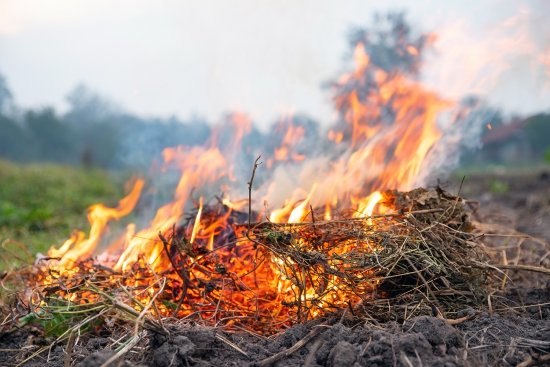

In North Dakota this spring, there is an increased risk of wildfires due to dry conditions combined with our seasonal spring high winds. This weekend, Fire Weather Watches are likely to be issued across the state. We offer tips to prevent damage to your operation or starting a fire that could damage someone else’s.
Farm Operation tips during Fire Weather Watches
A Fire Weather Watch is when dry or drought conditions are combined with an extended time of highly sustained winds or gusts. They are usually issued by the National Weather Service, but can be issued by local authorities. The National Weather Service monitors fire weather and conditions and posts forecasts, current hazards and fire situations.
When a Fire Weather Watch is issued, farmers and ranchers must not only protect their property, but also alter operations to not cause an uncontrolled fire.
Protecting your property and livestock
· Practice proper rangeland management.
· Clear brush or debris piles on an annual basis.
· Keep fence rows and ditches from being overgrown with seasonal weeds, trees, or bushes.
· Store fuel, chemicals, tractors, trucks, and other flammable equipment in areas that are fire resistant.
· Have a plan to be able to quickly move livestock out of pasture areas if a wildfire were to occur. This will allow shorter reaction times and prevent livestock loss.
· If you have the equipment available, have a truck with water tank ready to extinguish small fires that occur on or near your property.
Change your operations during a Fire Weather Watch
· Avoid starting any fires in your farmyard or in fields. It is always tempting to burn last fall’s stubble or ditches that are full of debris. But with dry conditions combined with wind, a small fire could blow embers for miles.
· Monitor all operations involving equipment. While the anticipation of spring field work being upon everyone, even a small spark from an implement hitting a rock while cultivating or a warm exhaust from a tractor can start last season’s field debris quickly.
· Do not use welders, grinders, or any other equipment that creates heat and spark. A spark from a weld could ignite even your farmyard’s grass and get away quickly.
· Always have equipment to put out small fires quickly. Fire extinguishers, shovels or picks and access to water should be a priority if you are doing any farming or ranching operations.
If you start a fire or see burning near your operation, contact the local authorities immediately. Don’t go to inspect or attempt to fight the fire first. Grass fires can escalate to uncontrollable within seconds. A call to the fire department can mean getting the equipment and personnel activated to help control.